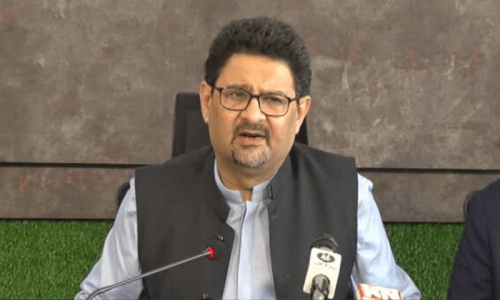ISLAMABAD: Former finance minister Miftah Ismail on Wednesday said Pakistan’s core problem was creation of a system by a few thousand elite families that worked too well for them and delivered too little to others.
He was speaking at a seminar at Quaid-i-Azam University (QAU) arranged by QAU History Society and hosted by the School of Economics.
The seminar was conducted by the Department of History chairperson Prof Ilhan Niaz.
Mr Ismail explained the structural limitations and problems faced by governments over time and the failure of all dispensations to deliver sustainable and just progress.
He said the consequences for Pakistan of this elite bargain are horrendous. Pakistan is falling behind in relative terms to much of the rest of the world. And while the elite obsesses with dollar-rupee rate or current account deficit, meaningful reforms in agriculture, exports, taxation, and education, are neglected or deemed too politically difficult to execute, he said.
The former finance minister called this the “wait till the next year” approach that all governments adopted when confronted with serious questions of policy and reform.
This status quo is not working for the 90pc of the population that does not have enough to eat, safe water to drink, or adequate access to education and healthcare.
Talking about the way forward Mr Ismail argued Pakistan must aggressively raise the Tax-to-GDP ratio to 15pc, invest massively in primary and secondary education, raise female labour force participation, and stop subsidizing elite waste and over consumption.
Fielding questions from students and faculty, Ismail took full responsibility for the collective failure of successive regimes, including that of the PML-N, to tackle the difficult problems.
He asserted that he was touring universities precisely to reach out to the youth and encourage them to understand how damaging and entrenched elite gate-keeping is in Pakistan and highlight the
need for them to mobilise around important questions of reform and policy as they have another 50-60 years to either make Pakistan into something worthwhile or stand by as it deteriorates further.
Published in Dawn, October 27th, 2022














































